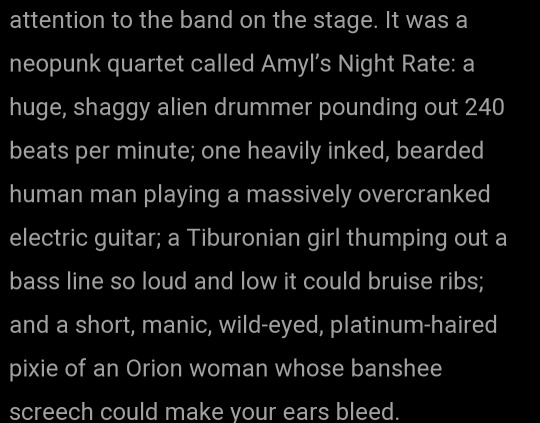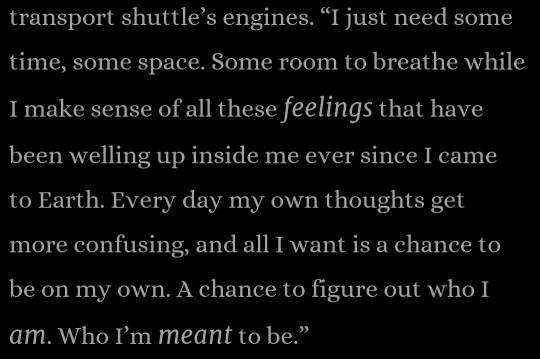#star trek picard firewall criticism
Explore tagged Tumblr posts
Text
read the first two chapters of the new seven of nine book and uhhh idk if I'll finish it. the writing is not great. it seemed very juvenile in tone to me, and dumbed down seven. i kinda figured it would be about on par with the picard's overall quality but i was cautiously optimistic too :/
#unless someone promises me it gets better........ looking like a dnf#they should go back to getting actors to write/co-write these books#star trek picard firewall criticism
3 notes
·
View notes
Text
Who Watches the Watchers? IT Security Concerns
Gene Roddenberry frequently used science fiction tales as parables for the real world. In Star Trek: The Next Generation, Season 3, Episode 4, we see a situation where anthropologists studying an early Vulcan civilization experience trouble and are at great risk for violating the Prime Directive. As the episode goes along, the lead scientist presses Captain Picard to expose their presence on a number of occasions and he refuses, again and again, to violate this key policy. The pressure mounts from the leading scientist to violate policy. If not for the integrity of the Captain, there's no doubt a breach would have occurred. This correlates extremely well to any number of situations in our society today, not the least of which is information technology security. Examples abound with real world issues, with the very recent breach that saw the U.S. Central Intelligence Agency literally "hack" computers used by U.S. Senators. If a police body has the ability and fortitude to break into elected officials systems, how can anyone trust their own internal IT organizations and employees? Inside threats, not only from information technology professionals, but any internal human resource, should concern all organizations. While the Edward Snowden story is the most public and well known internal theft, all companies need to understand their weaknesses and protect data, not only from external threats but internal attacks as well. Over half, and up to 75%, of all corporate espionage threats come from internal resources. Based on these facts, leaders must ask themselves, "What am I doing to protect my company and our data?" In my 20+ years of information technology experience I've seen numerous organizations either blindly trust their internal staff or not know enough, one way or the other, to question what's happening. I know a CIO that took his backups home so he knew where they were (a security breach in and of itself) and he didn't even perform validations to make sure those backups were retrievable. When I worked at a military base performing security work, there was little review of what was happening. I saw individuals performing penetration scans and data capture, with no authority or review. One of the staff opened ports on the firewall so he could access AOL Instant Messenger even though it was prohibited base wide. Since there was no oversight these junior employees had free reign to do what they wanted. Is your organization any different? My personal examples are a drop in the bucket. Students break into systems and change grades. Disgruntled employees hack out of revenge. This is an interesting situation as it raises the question on computer controls for terminated employees. Does your organization have a process? Is it followed? How quickly after termination does HR let IT know? Media outlets have issues with internal breaches as shown when a former employee provided credentials to outside hackers who, in turn, were able to alter a story in the LA Times. Questions abound with this breach, most focus on information security policies and procedures. Vendors are also internal threats and as Target found out during the 2013 holiday season, there's need to have policies and procedures with these individuals as well. It's critical these business partners respect their access and guard credentials accordingly. The idea of internal staff posing a risk should not only alarm management, it must prompt engagement. Understanding threats to an organization can help prevent certain breaches. While there are numerous examples of damage done by internal staff, it's important to know that there are remedies and protections; the first of which is acknowledging the problem. Organizations can, and should, enlist a 3rd party firm to audit their security policies and procedures. Make sure the audit concentrates on internal threats as it is imperative to isolate the largest area of threat first. From the audit, prioritize remediation steps and make a plan. It's more than likely the results will come back with numerous gaps and may cause concern and possibly fear. It's important to understand internal security threats is not a small problem impacting a select group of companies, colleges, governments, or non-profit organizations, this is a massive beast that impacts everyone, everywhere. As they say, "knowing is half the battle" and with engagement and understanding by management, organizations can at least start taking steps to understand their environment and protect themselves as best they can from internal threats.
0 notes
Note
It's the Seven book anon. Now I understand why you don't want to finish it. Seven is definitely smarter than just to get it with a newly met woman, even if she felt some attraction to her it would only make sense if it was a slow burn romance. I always assumed that evil lady spied on the rangers under the guise of aiding them, and did so for an extensive amount of time for Seven to even pay her any mind. And those lines you showed as an example of how ooc that was written. "She would not fucking say that TM". Seven is concise and precise with her words, random slogan words are meaningless to her and if she was experimenting with that, she wouldn't be overusing those words. She's rather careful with putting thoughts into words. And again, the way that scene was described, with run on sentences, just meh. Like you said, the author doesn't get Seven. And from what I can see, this writing style is just not from me. So thank you for explaining. Now I'll be less likely to read it (mostly to preserve the version of Seven's time between voy and pic my brain created).
Exactly! The whole thing just seemed very lazy and underwhelming to me.
There's a big change in Seven between voyager and picard, and back when s1 came out I was hesitant. But Jeri Ryan really sold it and I was on board with this new Seven who swore and drank and got revenge. BUT there's still a gap to bridge there too. She didn't step off voyager and suddenly talk like a noir detective. And in my mind, even picard-era Seven would still think like voyager-era Seven. She's still the same person after all and really, not much time has passed from voyager to the start of events in this novel. Maybe I'm nitpicking, but it was so opposite from what I would guess picard/ranger era Seven to be. She could be this person who thinks and talks like this at this point (maybe...) but it would need to be explained A LOT more than it was. She adapted to the more common speech patterns and started thinking more like an average alpha quadrant individual, but why and how and when? Still not answered. This is especially jarring since in the novel's exposition she was only talking about how she's an outcast in the AQ.
Anyway. I will also be holding onto my own visions of Seven's time between voyager and picard lol 🫡 I think that's the healthiest thing we can do right now.
#also she was a science officer (basically) on voyager ffs#you're telling me she just gave up any and all scientific persuit with no thought...... 🤨#sounds fake#seven of nine who once risked it all to see some atoms align would not accept that her replicator only made spicy kimchee#there's just so much that they're skipping over in her story and it's really disappointing#i haven't been tagging these posts because i don't want to be a downer to people who enjoyed this book (and picard s3 lol)#and also this book's title is ridiculous#but i guess if anyone wants to filter this out->#star trek picard firewall criticism#i'll add that to the other posts too
1 note
·
View note
Note
I was putting off buying that Seven book because I'd rather get it from a library some time in a future. Can you give an example what specifically is making you want to dnf it? I wasn't very optimistic about it but I've seen some people speaking positively about it.
Disclaimer that this is all ultimately personal preference and I'm sure there are people who will like this book for the exact reasons I don't,,, but to me Seven of Nine is one of the smartest characters, if not in Star Trek as a whole then at least in her own novel, or she should be. And yet in the first chapter she meets a woman she describes as unreadable (and who I assume will turn out to be what's her name evil lady from the Stardust City Rag ep who eventually betrays her) and then Seven just immediately opens up and trusts her. And this is supposedly well into her rangerhood and she's already jaded and a known people distruster. There's even a moment where the stranger spews a dumb heartfelt story to appeal to Seven's good will and it's just so obviously a trick, but Seven just goes along with it as if a page earlier she hadn't been complaining in her internal narration about people taking advantage of the rangers LOL. I will admit that after that Stardust City Rag ep, I was intrigued by the backstory of Seven and that evil lady! Like, how could Seven let someone like that in enough to be betrayed <- it was compelling! But if the answer is just "she was a pretty lady at a bar and Seven was gullible" ...... come on :[
Also I just can't figure out this writing style. I guess it's third person limited, mostly from Seven's pov, but so much of the narration I'm like... she would not fucking think like that or talk like that, even in her own head. She uses the word "donnybrook" unironically and she worries about meeting gangs because she's not sure she could defend herself. There's a convo between her and Janeway that I could not picture either of them actually saying those words. It just felt out of character and wrong.
Random examples of my "she would not say that" vibes:


I did read all the way to the third chapter and yeah... I'm gonna stop there. I will be interested to read a full synopsis of the plot once I can find some real spoilers, but from what I read I am not compelled to finish it. It just feels very... written by someone who doesn't get Seven. And I don't even feel like I'm that much of a Seven expert, but I do know what she isn't lol. I saw the people on here talking positively about it too and was intrigued, but I feel like this book is just going to be the same thing as Picard was: presents interesting ideas and doesn't follow through on them.
1 note
·
View note